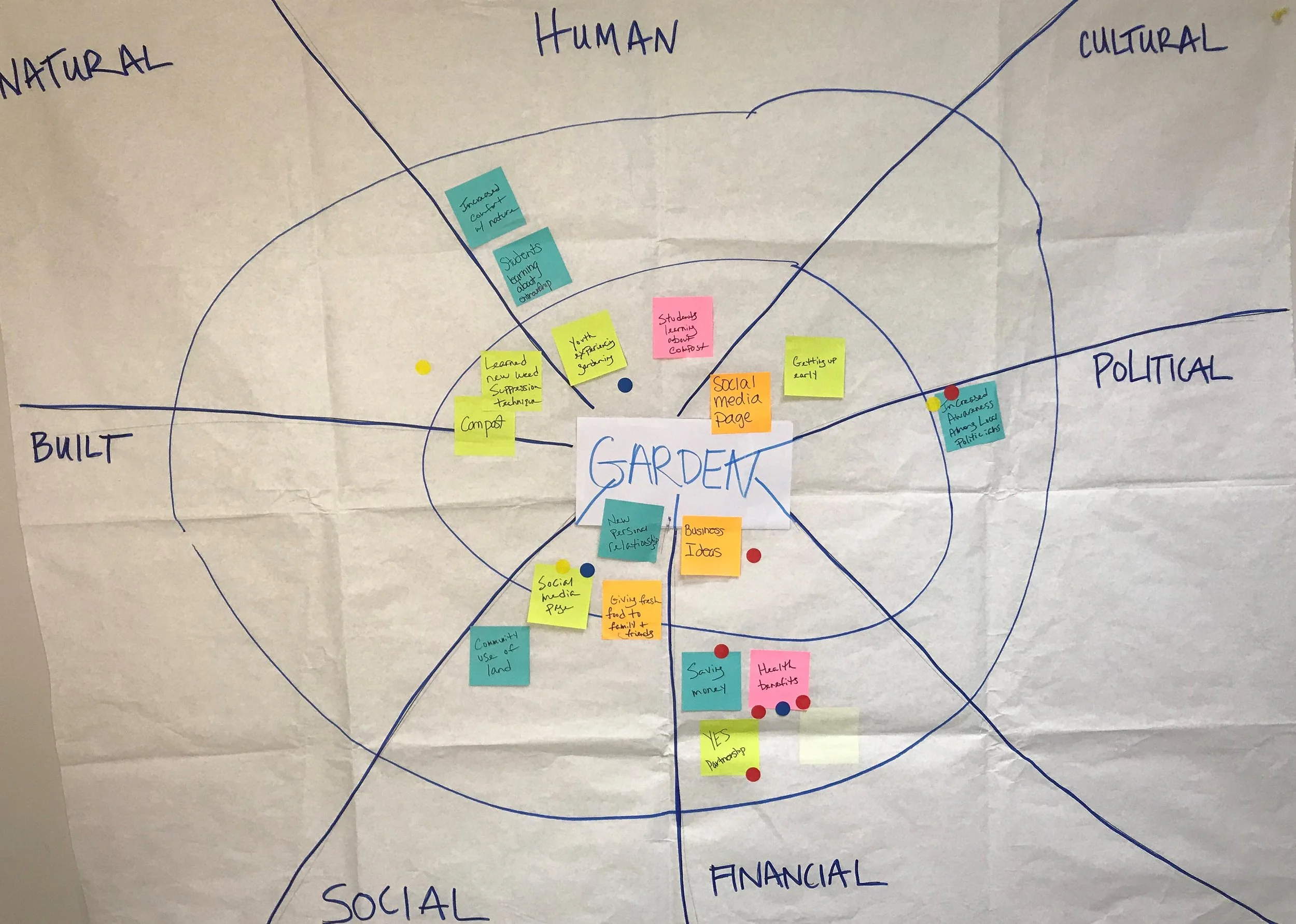Participatory Evaluation of Community Gardens
Visual Design by Juliana de Groot
Project
Designed and led a participatory evaluation of a community gardens project across North Carolina using Ripple Effects Mapping method.
Primary research questions were:
What unintended benefits are created through community gardens?
What do users of the community gardens define as the garden’s biggest impact? Why?
Claire Sadeghzadeh (Lead Evaluator and Facilitator), Juliana de Groot (Co-Facilitator and Graphic Designer), Brett Sheppard (Co-Facilitator), Molly De Marco (Principal Investigator)
Process
Recruitment: We worked with community leaders to recruit 10 – 15 people who had varying relationships with the garden – from people who received free produce through distribution points (e.g., food pantries) to people who supported organizing and fundraising efforts.
Data Collection: I facilitated 5 two-hour workshops in English and 1 two-hour workshop in Spanish and English. The workshop led users through:
An appreciative inquiry exercise where they reflected on this question, “What is an important or special experience that you had based on your involvement with the community garden? What did this lead to?”
A mind mapping exercise to organize and code identified benefits according to the Community Capitals Framework;
Consensus voting among all users (thumbs up, middle, or down);
Dot voting to select the garden’s biggest impact in their community;
A group photo to celebrate the work of the community.
User Insights
Users identified the most unintended benefits within the human capital category, including learning how to write grants, learning about healthy eating, and becoming more comfortable in nature.
Users saw their involvement in the gardens as a way to improve not only their physical health but their mental health and wellbeing. They saw gardening as therapeutic and felt better after being physical active.
Users redirected money saved through the garden to food or other household expenses.
Users talked fondly about how the garden helped them develop or deepen friendships with people in their community.
Takeaways
Centered the voices of users in defining the successes and benefits of their work and gave them ownership of these data through the development of the mind maps.
Provided a roadmap for other public health organizations to consider participatory, emergent strategies for understanding how multi-sectoral strategies impact communities at the individual, interpersonal, and community-level.



